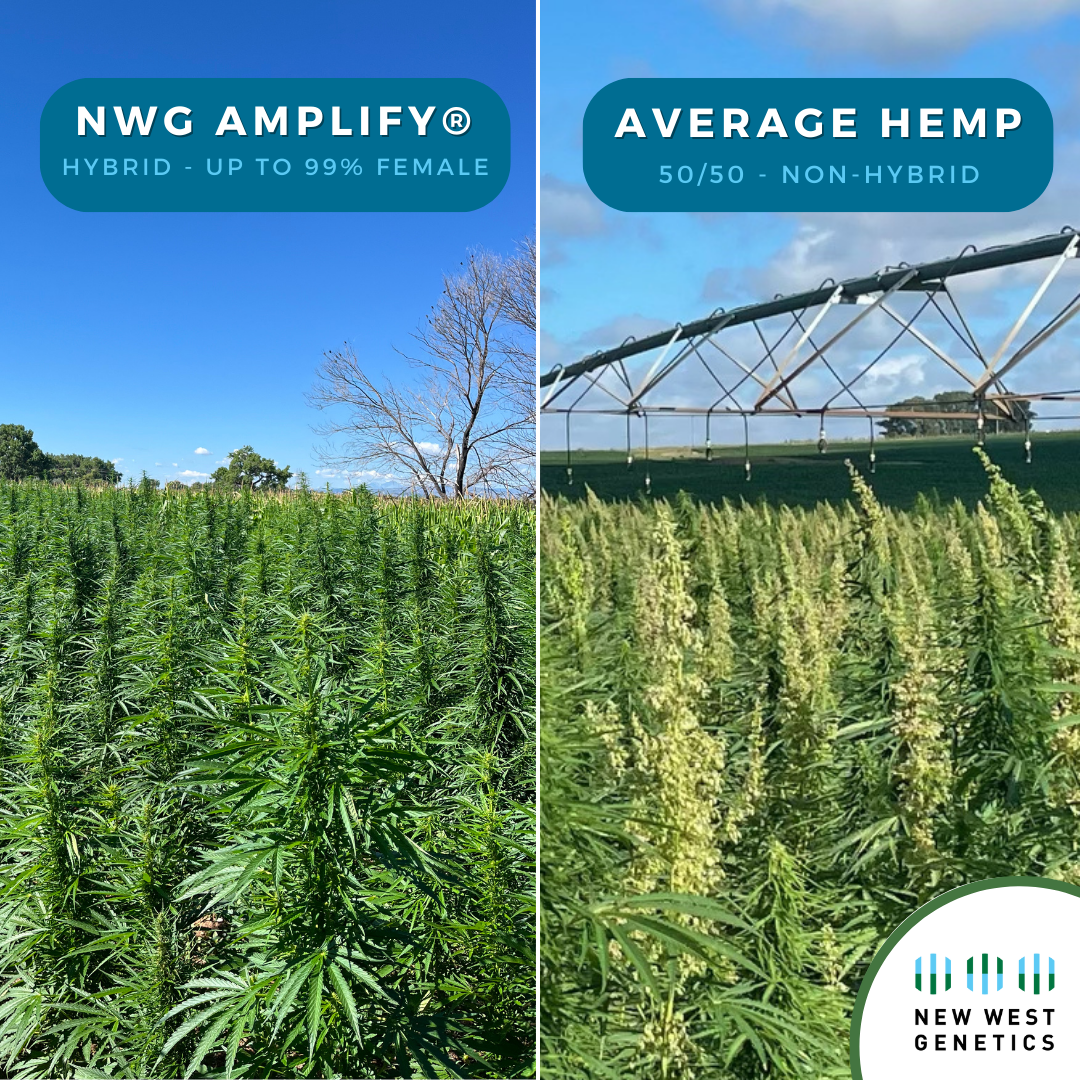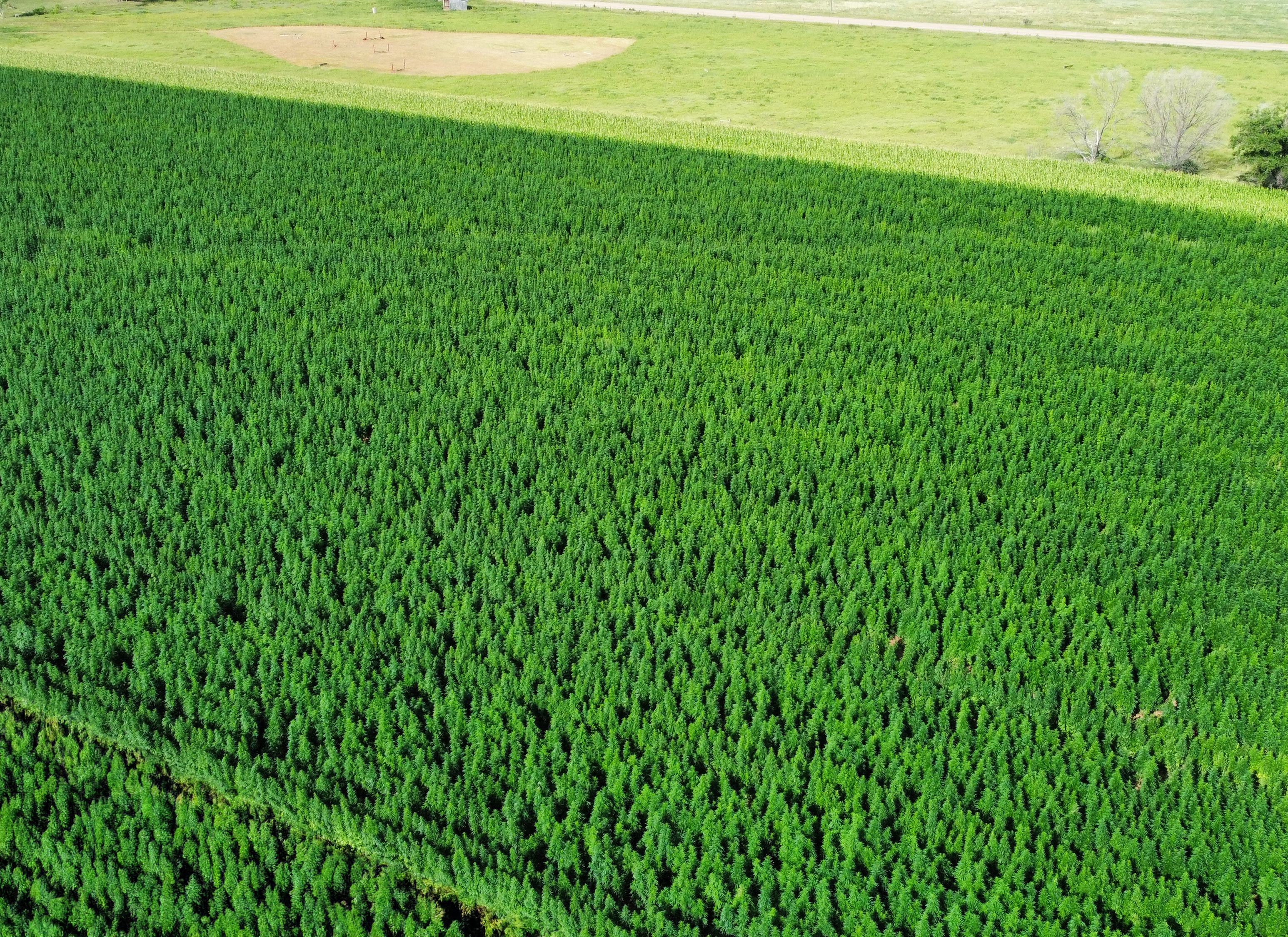New West Genetics aims to contribute solutions to agriculture’s climate challenges, and the NWG AMPLIFY SBIR grant project will enable just that. Since 2014, NWG has revolutionized the industrial hemp industry by leveraging traditional genome-enabled plant breeding approaches and launching certified, US-bred commercial seed varieties and hybrids. This project is a testament to NWG’s commitment to innovation, aiming to significantly enhance grain yields and fiber quality of industrial hemp, thereby offering a sustainable alternative to traditional crops like soybeans.
At the heart of NWG’s approach is the utilization of existing genetics and their vast gene bank to develop improved hemp hybrids with significantly higher yields. By focusing on hybrid planting seeds, NWG aims to more than double the grain yields compared to existing genetics, bringing them on par with current soybean yields. This genetic innovation not only promises to enhance the economic viability of hemp but also offers a new cropping and rotation option for U.S. farmers, alongside providing food manufacturers with a cost-effective and nutritious ingredient.

Hemp grain, renowned for its high lipid content and balanced amino acid profile, is considered a superfood. It surpasses soy in lipid content and offers a rich source of omega-3 and omega-6 fatty acids. Beyond its nutritional value, hemp stalks, composed of bast and hurd fibers, hold significant market value for producing textiles, bio-plastics, and other sustainable materials. The dual-purpose production of grain and stalk from the same crop underscores hemp’s versatility and potential as a sustainable agricultural resource.
The NWG AMPLIFY SBIR grant project also highlights the pressing need for diversifying the U.S. crop rotation system, currently dominated by maize and soy. These crops, heavily subsidized and ecologically taxing due to their high synthetic fertilizer requirements, underscore the urgency for sustainable alternatives. Hemp, with its lower nitrogen requirements and deep root systems, offers a promising solution. It not only improves soil health and agroecosystem resilience but also contributes to carbon sequestration, showcasing its environmental benefits.
NWG’s breeding program has produced Female Skewed Hybrid Seed (FSHS), NWG AMPLIFY hybrids, with a sex ratio skewed towards females to increase yield and improve the economics of the hemp supply chain. The project will demonstrate the consistent production of FSHS with over 90% females and support the identification of genotypes that skew towards higher proportions of females. The NWG breeding team also aims to improve traits in the hybrid parent lines. This endeavor can transform hemp’s value by doubling yields, improving crop uniformity, and enhancing fiber quality.
This project is poised to make a significant environmental impact by promoting diverse crop rotations and improved soil carbon sequestration. It offers farmers greater ROI on their crop and economics that compete with large commodity crops. Finally, achieving yields and economic parity with soybeans could potentially redirect a substantial portion of the soy market value towards hemp, highlighting the project’s vast potential benefits.

The NWG AMPLIFY SBIR grant project represents a pivotal step towards realizing the full potential of hemp as a sustainable agricultural crop. By addressing the genetic, economic, and environmental challenges associated with hemp cultivation, NWG is not only aiming to enhance the crop’s viability but also contributing to a more sustainable and diversified agricultural landscape. The project’s success could herald a new era of sustainable agriculture, where hemp plays a central role in meeting the world’s food, fiber, and environmental needs.